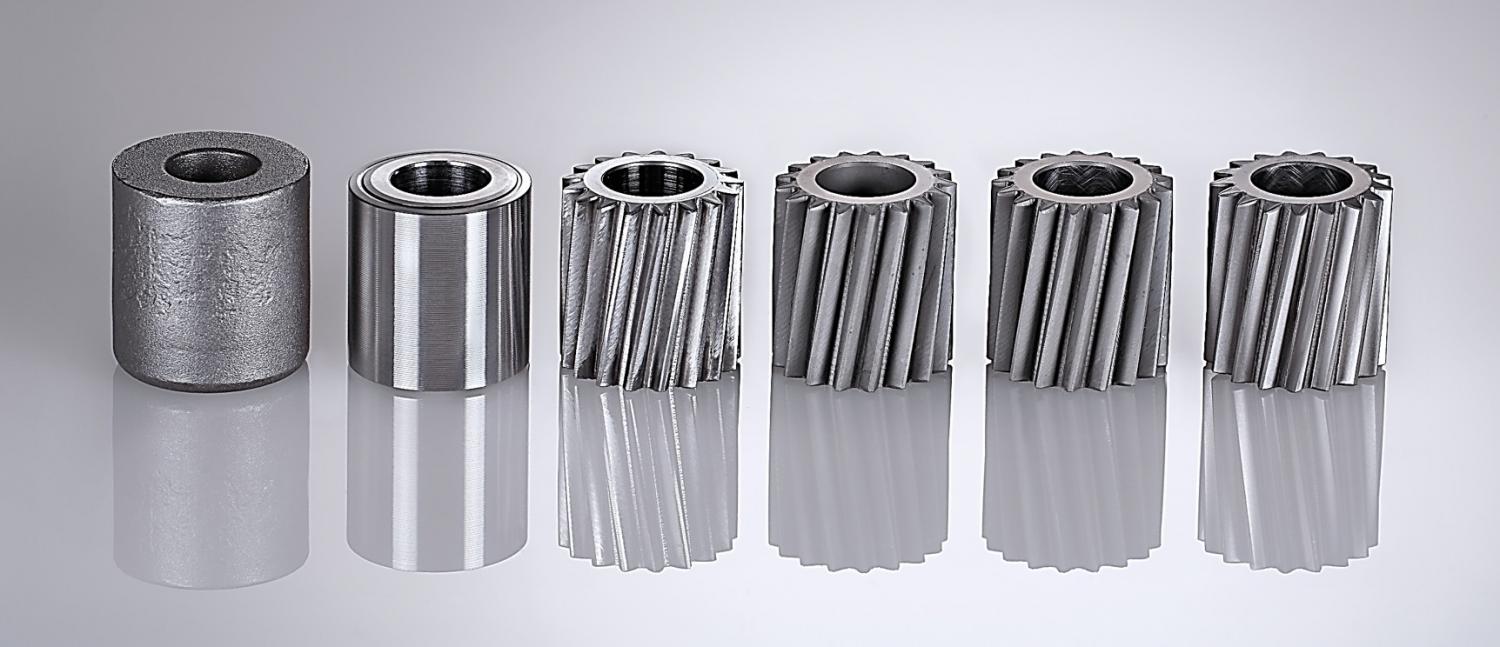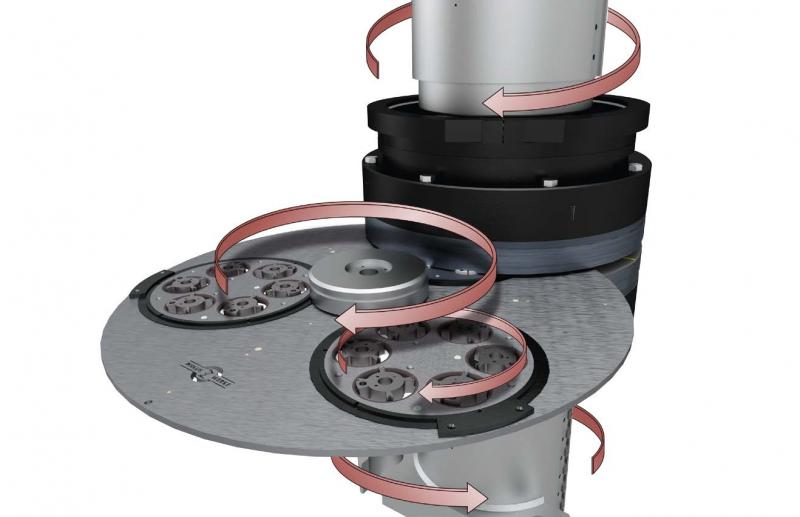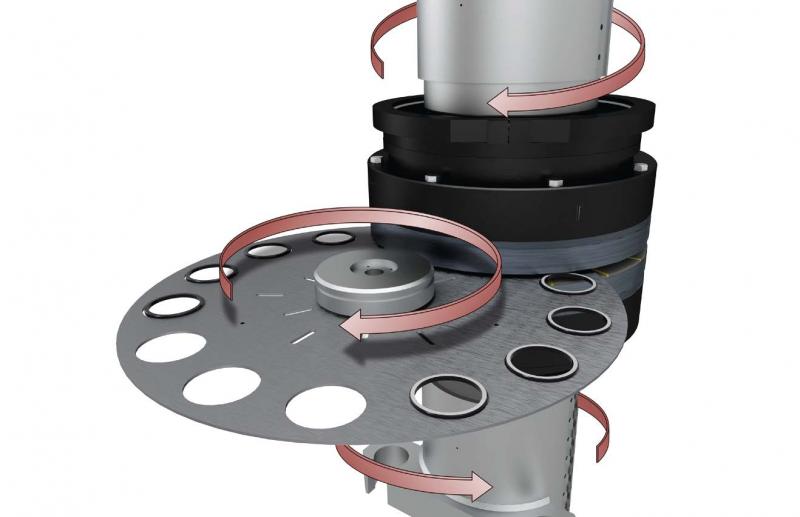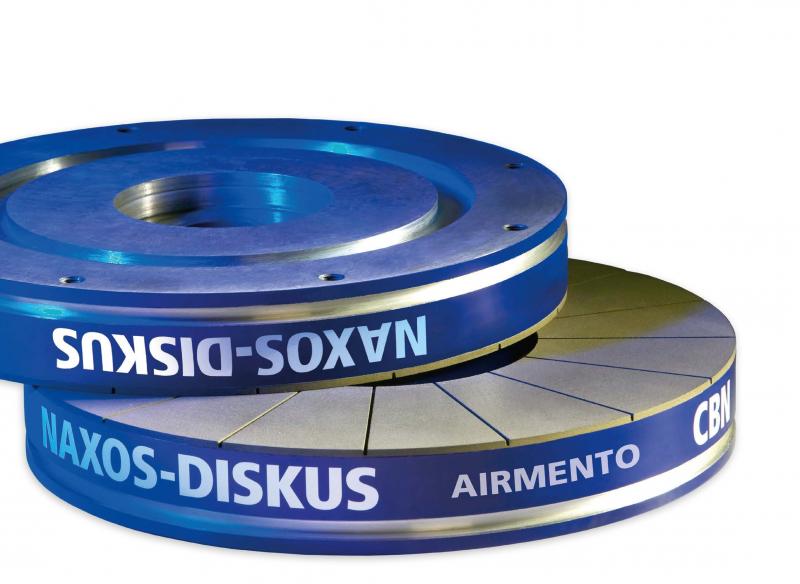DVS abrasives specialist NAXOS-DISKUS Schleifmittelwerke expands its competence portfolio with "AIRMENTO", an extraordinarily powerful resin bond for CBN grinding wheels used in the field of double face grinding. In a joint effort with DVS affiliate DISKUS WERKE Schleiftechnik, AIRMENTO has been designed to boast outstanding features with regard to bonding strength, thermal stability and damping behaviour. This results in extended tool life, improved conditioning ability as well as higher parameters for peripheral speed and grinding depth for optimised material removal rates in order to fulfil highest user requirements.
Cubic boron nitride (CBN) – second to diamond when it comes to extremely hard materials – is an indispensable cutting material in abrasives specifically for use by the automotive industry and its suppliers. Its extraordinarily long life and superior material removal rates meet the tremendous requirements evolving under the increasing use of more wear-resistant and, thus, harder to machine materials as well as the ongoing trend towards higher productivity and quality of the automatic grinding of the associated vehicle components.
Development focus on identifying and testing new bonding systems
For years, the DVS abrasives expert headquartered in Butzbach, Hesse/Germany has been well known for AUMENTO, its benchmark-setting ceramic CBN bonding range. They are now presenting the latest outcome of their efforts: AIRMENTO, a CBN resin bond specifically designed for the needs of double face grinding of low-profile, extremely hard and wear-resistant parts. Specifically ensuring a long service life and grinding quality under enormous thermal and dynamic loads at cutting speeds of up to 90 m/s as well as supporting the controlled discharge of chips and abrasive dust is an absolute must for this technology used for the machining of high-precision coplanar surfaces. The reason for the latter: considering that there are two grinding tools directly facing one another plus a transfer disc designed to move the parts through the very narrow grinding zone, there is not much space left to wash the debris off the abrasive layers.
Extensive test series confirm outstanding performance capabilities
Developing AIRMENTO started with a series of thorough tests carried out together with DVS affiliate DISKUS WERKE Schleiftechnik, a leading manufacturer of grinding machines for machining coplanar surfaces with micrometric precision. First of all, a benchmark test was made using a DDS XR-series DISKUS machine and the plunge grinding method for the hard fine machining of high-strength rotors of sintered material. Within the context of this method, several rotors are separately placed in distinct, revolving component adapters, or forms, and moved through the space between the two vertically stacked grinding wheels by the likewise revolving transfer disc. To remove the material by the 0.3 mm specified for this test case, the grinding tools are continuously advanced until the target size has been achieved (see Image 1). Despite the extreme stress that the two grinding surfaces were exposed to, the cold-pressed CBN grinding wheel bonded with AIRMENTO deformed just marginally although its dressing and grinding interval was increased by 20% compared to a conventional hot-pressed CBN tool. Another test made with the same DISKUS machine confirmed the outstanding efficiency of the new bonding system, except that this test used the highly productive through-feed grinding method which involves a continuously revolving transfer disc to successively move the parts through the narrow grinding zone (see Image 2). Adjusting rings, 23.7 mm in diameter, were machined down by 0.15 mm. Afterwards, their parallelism varied by just 1.8 µm which is a lot less than accomplished with hot-pressed CBN grinding wheels – while achieving a significantly longer service life and thus lower tooling costs per part.
AIRMENTO ensures a controlled discharge of chips and abrasive dust
The extraordinary durability of AIRMENTO generally enables to reduce the amount of bonding while improving the bonding strength of the nickel-coated abrasive CBN grit, thus allowing for higher parameters for peripheral speed and grinding depth to be realised in the course of the grinding process. Another positive side-effect of reducing the amount of bond and deliberately doing without hot-pressed resin-bonded CBN discs is the increased pore volume as this allows the chip cavities in the abrasive grit to absorb both the removed material and the abrasive dust. This in turn supports the entry of coolant into the narrow grinding zone and, thus, the dissipation of abrasive dust and heat from the contact zone. In order to improve thermal stability, the new bonding system has been augmented with particular additives and fillers specifically designed to reduce the thermal load and consequently, to produce a cooler cut at lower pressure. All in all, AIRMENTO benefits users with a longer tool life, enhanced conditioning ability and higher feed and supply rates for an optimised material removal rate when double face grinding parts with extreme hardness and abrasion resistance.






 Germany
Germany 